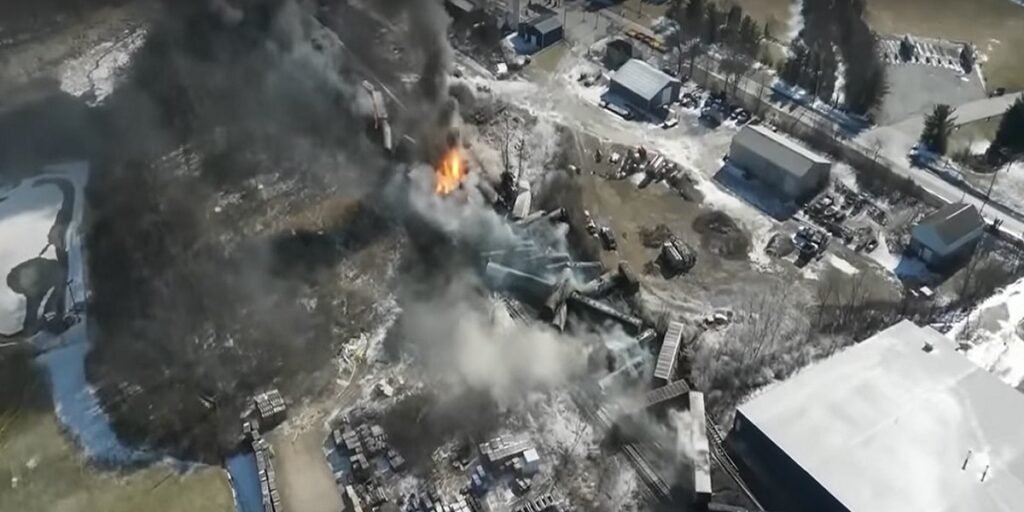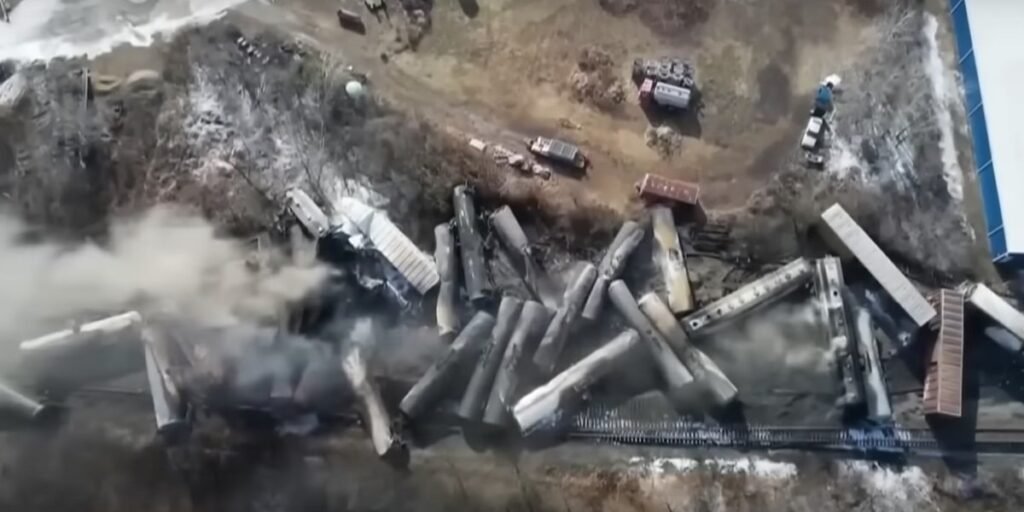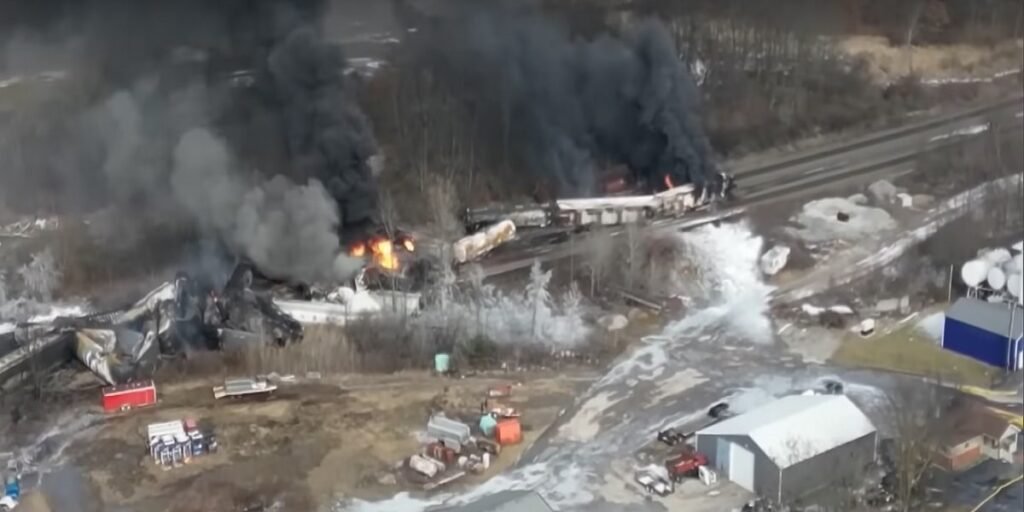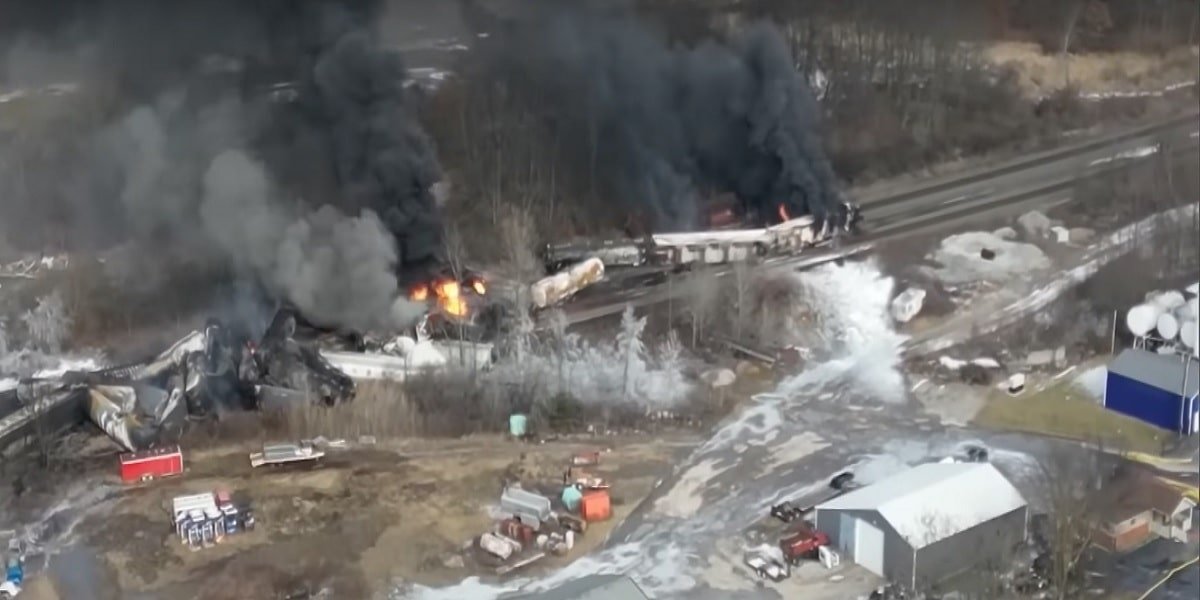Table of Contents
ToggleChemical Train Derailment
The Ohio train derailment that occurred in East Palestine, Ohio, on February 3, 2023, had profound and lasting effects on the town and its residents. The incident involved a train transporting vinyl chloride and other hazardous materials, which derailed, necessitating a controlled release of chemicals to prevent potential explosions.

In the aftermath, residents grew increasingly worried about the potential contamination of air and water. Lingering chemical odors and persistent headaches within the community heightened concerns about the long-term impacts on human health and the environment. The slow dissemination of information following the derailment raised significant questions regarding the risks associated with the incident.
Among those directly affected were John and Lisa Hamner, owners of a local garbage truck business, who shared the substantial impact of the derailment on their lives. They detailed both physical and psychological repercussions, expressing concerns about their health, business setbacks, and the future of the town itself. Sleepless nights, heightened anxiety, and an overarching sense of worry about the community’s well-being became prevalent among residents.

Criticism was directed at Norfolk Southern, the company operating the derailed train, for its delayed response in attending a question-and-answer session with residents. This lack of immediate communication fostered mistrust and anger among the local population. Furthermore, the spillage of chemicals into waterways raised alarm about potential contamination spreading to other areas that rely on the Ohio River for their drinking water.
The chemical train derailment in East Palestine underscored the far-reaching consequences on residents’ lives, local businesses, and the environment. It emphasized the critical need for swift and transparent communication, comprehensive cleanup efforts, and ongoing monitoring to effectively mitigate risks to both human health and ecosystems. This incident serves as a poignant reminder of the importance of proactive measures in addressing and averting such environmental crises
After Ohio Chemical Train Derailment
The chemical train derailment that occurred in East Palestine, Ohio train, on February 3, 2023, has sparked considerable apprehension owing to the presence of hazardous chemicals. Approximately twelve train cars, transporting substances such as vinyl chloride, ethylhexyl acrylate, and butyl acrylate, derailed, resulting in a fire that emitted acrid black smoke.

The primary concerns centered around the potential contamination of residences, soil, and water by volatile organic compounds (VOCs) and semivolatile organic compounds (SVOCs).
The enduring risks linked to these chemicals are significant. Heavier chemicals, by their nature, degrade slowly and can persist in the soil for extended periods unless adequately addressed.
The efficacy of the cleanup process is pivotal in alleviating long-term repercussions; the swift and thorough removal of contaminated soil and liquids can minimize the likelihood of further contamination spread.

Incineration is a prevalent method for disposing of hazardous chemicals; however, incomplete combustion can result in the generation of harmful byproducts.
The dense black smoke witnessed during the fire signified incomplete combustion, indicating the potential formation of additional chemicals. The precise characteristics and whereabouts of these byproducts remain undisclosed until further testing is conducted.
The impact of such incidents on human health and wildlife is substantial. Chemicals released during calamities like this derailment can infiltrate homes through various avenues, posing risks to residents. Understanding the behavior of these chemicals in enclosed spaces is imperative for evaluating potential health hazards.










